Fiction
Fiction

Playboy
The prequel to Love Me Tender, narrating Debré's transformation from affluent career woman to broke single lesbian and writer.
I see all her beauty, I see the beauty of women. I see my own body, new. I tell myself there are so many things that are possible.
First published in France in 2018, Playboy is the first volume of Constance Debré's renowned autobiographical trilogy that describes her decision, at age forty-three, to abandon her marriage, her legal career, and her bourgeois Parisian life to become a lesbian and a writer.
The novel unfolds in a series of short, sharp vignettes. The narrator's descriptions of her first female lovers—a married woman fifteen years older than her, a model ten years her junior—are punctuated by encounters with her ex-husband, her father, and her son.
As Debré recently told Granta: “It was a bit like Saint Augustine and his conversion. In the same week, I had sex with a girl and I had the feeling that I could write. I had this incredible feeling that I could catch things, that life was there to be caught.”
Looking at the world through fresh eyes, the narrator of Playboy questions everything that once lay beneath the surface of her well-managed life. Laconic, aggressive, and radically truthful, she examines gender and marriage, selfishness and sacrifice, money and family, even the privilege inherent in her downward mobility.
Writing her way toward her own liberation, Debré chronicles the process that made her one of the most brilliant, important French writers today.

Sphinx
Sphinx is the remarkable debut novel, originally published in 1986, by the incredibly talented and inventive French author Anne Garréta, one of the few female members of Oulipo, the influential and exclusive French experimental literary group whose mission is to create literature based on mathematical and linguistic restraints, and whose ranks include Georges Perec and Italo Calvino, among others.
A beautiful and complex love story between two characters, the narrator, "I," and their lover, A***, written without using any gender markers to refer to the main characters, Sphinx is a remarkable linguistic feat and paragon of experimental literature that has never been accomplished before or since in the strictly-gendered French language.
Sphinx is a landmark text in the feminist and LGBT literary canon appearing in English for the first time.
Anne Garréta (b. 1962) is a lecturer at the University of Rennes II and research professor of literature and Romance studies at Duke University. She joined the Oulipo in 2000, becoming the first member to join born after the Oulipo was founded. Garréta won France's prestigious Prix Médicis in 2002, awarded each year to an author whose "fame does not yet match their talent," for her novel Pas un jour.
Emma Ramadan is a graduate of Brown University and received her master's in literary translation from the American University of Paris. Her translation of Anne Parian's Monospace is forthcoming from La Presse. She is currently on a Fulbright Fellowship for literary translation in Morocco.

Organ Meats
Two girls are bound by red string and canine heritage in this vivid tale about female companionship and loyalty, from the National Book Award "5 Under 35" honoree and author of Gods of Want.
Best friends Anita and Rainie have made countless visits to their home base: an old sycamore tree and its neighboring lot of stray dogs who have a mysterious ability to communicate with humans. The girls learn that they are preceded by generations of dog-headed women and women-headed dogs whose bloodlines knot them together like thread. Anita convinces her best friend Rainie to become a dog with her, tying a collar of red string around each of their necks to preserve their kinship forever. But when the two girls are separated, Anita sinks into her dreams and lands herself in a coma that only Rainie knows how to rouse her from. As Anita’s body begins to rot, her mind straying farther and farther away from the waking world, it is up to Rainie to rebuild her friend’s body and keep Anita from being lost forever.* Tasked with gathering new organs from the mythical landscape of their shared childhood, Rainie must return to the past and ask herself how far she is willing to go to reunite with the girl who has haunted her and hunted her in equal measure.
In rhythmically poetic and visceral lore, K-Ming Chang veers away from the ordinary and into the macabre. Filled with ghosts and bodily entrails, this is a story about the horror and beauty of intimacy, being tethered to another person across time and space, and transforming our origins.
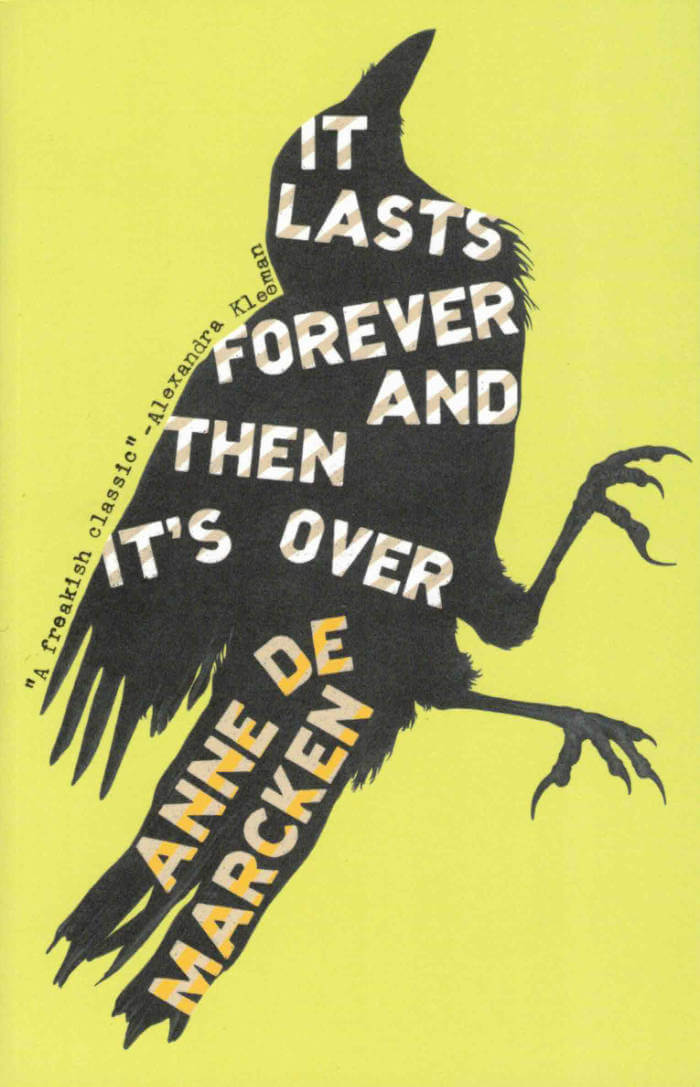
It Lasts Forever and Then It's Over
Co-winner of the 2022 Novel Prize, this incredible life-after-death novel asks us to consider how much of our memory, of our bodies, of the world as we know it ― how much of what we love can we lose before we are lost? And then what happens?
The heroine of the spare and haunting It Lasts Forever and Then It’s Over is voraciously alive in the afterlife. Adrift yet keenly aware, she notes every bizarre detail of her new reality. And even if she has forgotten her name and much of what connects her to her humanity, she remembers with an implacable and nearly unbearable longing the place where she knew herself and was known―where she loved and was loved.
Traveling across the landscapes of time and of space, heading always west, and carrying a dead but laconically opinionated crow in her chest, our undead narrator encounters and loses parts of her body and her self in one terrifying, hilarious, and heartbreaking situation after another. A bracing writer of great nerve and verve, Anne de Marcken bends reality (and the reader’s mind) with throwaway assurance.
It Lasts Forever and Then It’s Over plumbs mortality and how it changes everything, except possibly love. Delivering a near-Beckettian whopping to the reader’s imagination, this is one of the sharpest and funniest novels of recent years, a tale for our dispossessed times.

The Extinction of Irena Rey
From the International Booker Prize-winning translator and Women's Prize finalist, an utterly beguiling novel about eight translators and their search for a world-renowned author who goes missing in a primeval Polish forest.
Eight translators arrive at a house in a primeval Polish forest on the border of Belarus. It belongs to the world-renowned author Irena Rey, and they are there to translate her magnum opus, Gray Eminence. But within days of their arrival, Irena disappears without a trace.
The translators, who hail from eight different countries but share the same reverence for their beloved author, begin to investigate where she may have gone while proceeding with work on her masterpiece. They explore this ancient wooded refuge with its intoxicating slime molds and lichens and study her exotic belongings and layered texts for clues. But doing so reveals secrets-and deceptions-of Irena Rey's that they are utterly unprepared for. Forced to face their differences as they grow increasingly paranoid in this fever dream of isolation and obsession, soon the translators are tangled up in a web of rivalries and desire, threatening not only their work but the fate of their beloved author herself.
This hilarious, thought-provoking debut novel is a brilliant examination of art, celebrity, the natural world, and the power of language. It is an unforgettable, unputdownable adventure with a small but global cast of characters shaken by the shocks of love, destruction, and creation in one of Europe's last great wildernesses.

Biography of X
From one of our fiercest stylists, a roaring epic chronicling the life, times, and secrets of a notorious artist.
When X—an iconoclastic artist, writer, and polarizing shape-shifter—falls dead in her office, her widow, wild with grief and refusing everyone’s good advice, hurls herself into writing a biography of the woman she deified. Though X was recognized as a crucial creative force of her era, she kept a tight grip on her life story. Not even CM, her wife, knew where X had been born, and in her quest to find out, she opens a Pandora’s box of secrets, betrayals, and destruction. All the while, she immerses herself in the history of the Southern Territory, a fascist theocracy that split from the rest of the country after World War II, as it is finally, in the present day, forced into an uneasy reunification.
A masterfully constructed literary adventure complete with original images assembled by X’s widow, Biography of X follows a grieving wife seeking to understand the woman who enthralled her. CM traces X’s peripatetic trajectory over decades, from Europe to the ruins of America's divided territories, and through her collaborations and feuds with everyone from Bowie and Waits to Sontag and Acker. And when she finally understands the scope of X’s defining artistic project, CM realizes her wife’s deceptions were far crueler than she imagined.
Pulsing with suspense and intellect while blending nonfiction and fiction, Biography of X is a roaring epic that plumbs the depths of grief, art, and love. In her most ambitious novel yet, Catherine Lacey, one of our most acclaimed literary innovators, pushes her craft to its highest level, introducing us to an unforgettable character who, in her tantalizing mystery, shows us the fallibility of the stories we craft for ourselves.
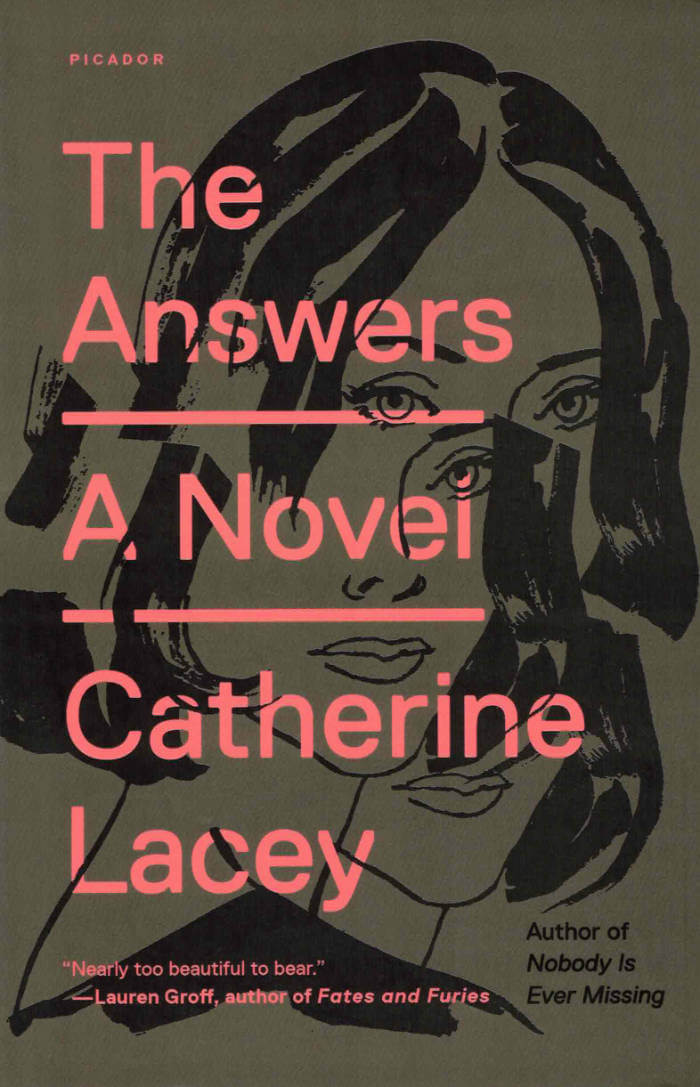
The Answers
An urgent, propulsive novel about a woman learning to negotiate her ailment and its various aftereffects via the simulacrum of a perfect romantic relationship.
In Catherine Lacey’s ambitious second novel we are introduced to Mary, a young woman living in New York City and struggling to cope with a body that has betrayed her. All but paralyzed with pain, Mary seeks relief from a New Agey treatment called Pneuma Adaptive Kinesthesia, PAKing for short. And, remarkably, it works. But PAKing is prohibitively expensive and Mary is dead broke. So she scours Craigslist for fast-cash jobs and finds herself applying for the “Girlfriend Experiment,” the brainchild of an eccentric actor, Kurt Sky, who is determined to find the perfect relationship—even if that means paying different women to fulfill distinctive roles. Mary is hired as the “Emotional Girlfriend”—certainly better than the “Anger Girlfriend” or the “Maternal Girlfriend”—and is pulled into Kurt’s ego-driven and messy attempt at human connection.
Told in her signature spiraling prose, The Answers is full of the singular yet universal insights readers have come to expect from Lacey. It is a gorgeous hybrid of the plot- and the idea-driven novel that will leave you reeling.

England With Eggs
Somewhere in England, confined to a room with empty chairs and an old telephone, is I. I wasn’t born here. English is their second language. They’ve given up writing. England With Eggs depicts the psychological aftermath of migration through a personal vortex of foreign experiences. Oscillating between narrator and character, Franz Kafka and long-distance calls, I spends sleepless nights drawing eggs, rearranging the chairs and talking to an uncanny voice on the phone. The isolated protagonist’s inner life is fractured: notions of place and history grow ever more fragile, language ever less certain. Torn between stubborn expectations and the reality of a foreign country, England With Eggs unfolds against a silent backdrop of austerity, colonialism and xenophobia. It is a study of acceptance, a reminder that sometimes the things we flee from are the ones we carry along on our journey.
This publication is limited to 100 copies, which are signed and numbered by the author.
Edited by Angie Harms
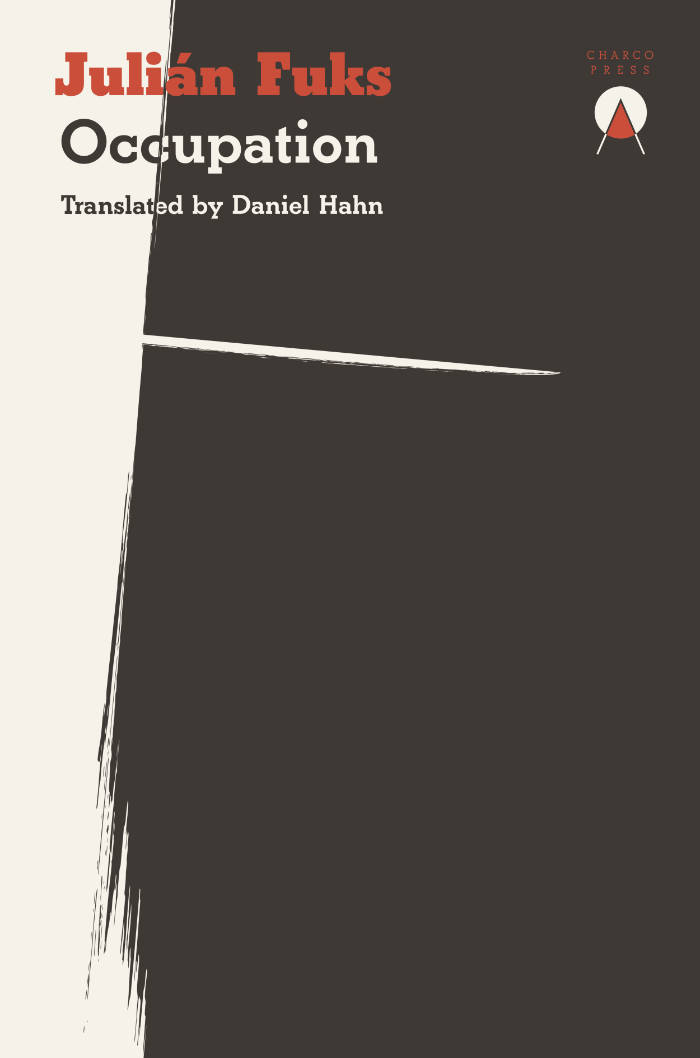
Occupation
Known and celebrated in Brazil and abroad for his novel Resistance, Julián Fuks returns to his auto-fictional alter ego Sebastián in a narrative alternating between the writer’s conversations with refugees occupying a building in downtown São Paulo, his father’s sickness, and his wife’s pregnancy. With impeccable prose, the author builds associations that go beyond the obvious, not only between glimpsing a life's beginning and end, but also between the building’s occupation and his wife's pregnancy — showcasing the various forms of occupation while exposing the frailty of life, the risk of solitude and the brutality of not belonging.

Split Tooth (Uk edition)
Fact can be as strange as fiction. It can also be as dark, as violent, as rapturous. In the end, there may be no difference between them. An Inuk girl grows up in Nunavut, Canada, in the 1970s. She knows joy, and friendship, and parents’ love. She knows boredom, and listlessness, and bullying. She knows the tedium of the everyday world, and the raw, amoral power of the ice and sky, the seductive energy of the animal world. She knows the ravages of alcohol, and violence at the hands of those she should be able to trust. She sees the spirits that surround her, and the immense power that dwarfs all of us.
When she becomes pregnant, she must navigate all this.
In this acclaimed debut novel – haunting, brooding, exhilarating, and tender all at once – Tanya Tagaq explores the grittiest features of a small Arctic town and the electrifying proximity of the worlds of animals and of myth.
Winner of the 2019 Indigenous Voices Award for Published Prose in English.
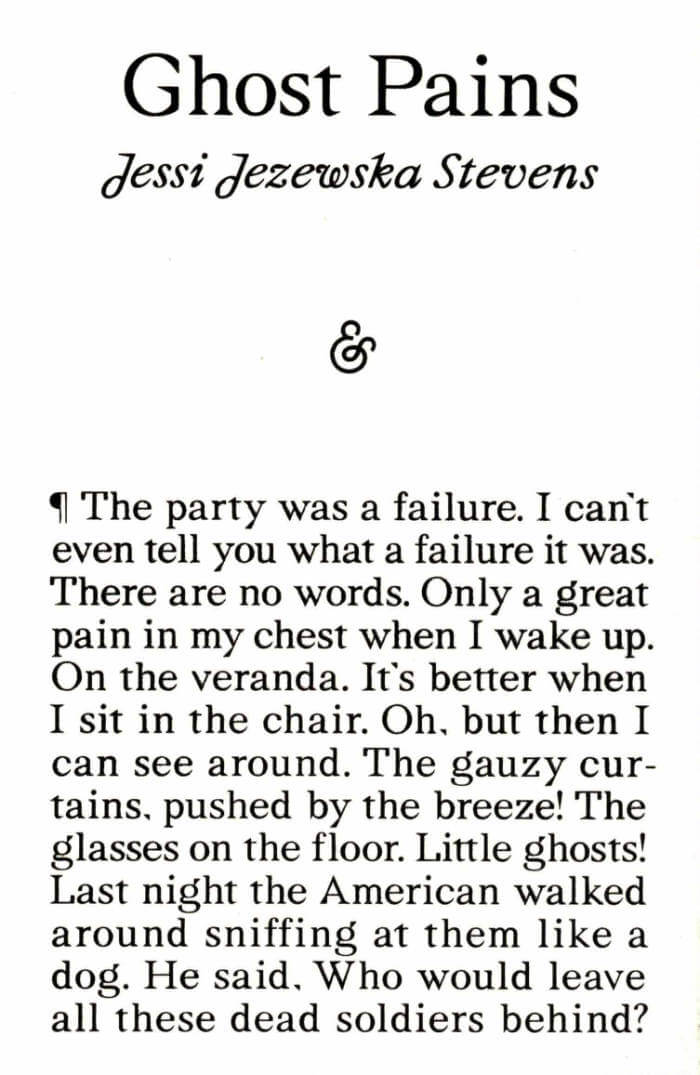
Ghost Pains
With her novel The Visitors, Jessi Jezewska Stevens has proven herself as our preeminent purveyor of comical, techno-millenarian unease. Now, with this first collection of her acclaimed short fiction – originally appearing in such venues as The Paris Review and Harper’s – some of her very best work is at last readily available to readers.
Stevens’s women throw disastrous parties in the post-party era, flirt through landscapes of terror and war, and find themselves unrecognisable after waking up with old flames in new cities. They navigate the labyrinths of history, love, and ethics in a fractured American present, seeing first-hand how history influences the ways in which we care for – or neglect – one another.
With each story exemplifying Stevens’s ability to examine the big questions through the microscope of a shambolic human perspective, Ghost Pains is a triumphant statement of purpose from one of our greatest young writer-thinkers.

Boulder
Working as a cook on a merchant ship, a woman comes to know and love Samsa, a woman who gives her the nickname ‘Boulder’. When Samsa gets a job in Reykjavik and the couple decides to move there together, Samsa decides that she wants to have a child. She is already forty and can’t bear to let the opportunity pass her by. Boulder is less enthused, but doesn’t know how to say no – and so finds herself dragged along on a journey that feels as thankless as it is alien.
With motherhood changing Samsa into a stranger, Boulder must decide where her priorities lie, and whether her yearning for freedom can truly trump her yearning for love.
Once again, Eva Baltasar demonstrates her pre-eminence as a chronicler of queer voices navigating a hostile world – and in prose as brittle and beautiful as an ancient saga.
Shortlisted for the 2023 International Booker Prize.

Verdant Inferno/A Scabby Black Brazilian
Alberto Rangel, Jean-Christophe Goddard
A classic of Brazilian literature is twinned with an overheated tract in which tropical delirium swallows up Western philosophy. Both attack the decolonial question with poetic ferocity, ignited by the moment when colonialist rationality meets its limits in the "magnificent disorder" of the Amazon jungle.
Described in Eduardo Viveiros de Castro's foreword as "no longer an interpretation of Brazil but an interpenetration with Brazil," Jean-Christophe Goddard's strange theory-fiction plunges Western philosophy into the great American schizophrenia, where its ordered categories are devored by uncontainable contaminations—first and foremost the rainforest itself, a "monstrosity unapproachable by the cogito."
In 1664, the Portuguese Bento de Espinosa wrote of his terrifying hallucination of "a scabby black Brazilian." But rather than a vision of "the Other," the dream figure was a frightful glimpse of Bento's own duplicity. Upon adopting the "clean white nickname" of Benedict de Spinoza, the philosopher cut ties with his homeland and its colonial misadventures, repudiating this specter that flees along the lines of migration: "Spinoza is American ... the journey is intensive." And in his wake, a cannibalized cast of conceptual personae are sucked into Goddard's Pernambucan delirium: Franny Deleuze, Dina Levi-Strauss, Chaya Ohloclitorispector, Galli Mathias...
The rainforest also precipitates a deregulation of the senses in Verdant Inferno, Alberto Rangel's classic 1904 work of Brazilian literature. In Rangel's astonishing tales, this "poet-engineer" sent into the dark interior as a state representative records his encounters in a style that shimmers between objective documentary and visionary limit experience.
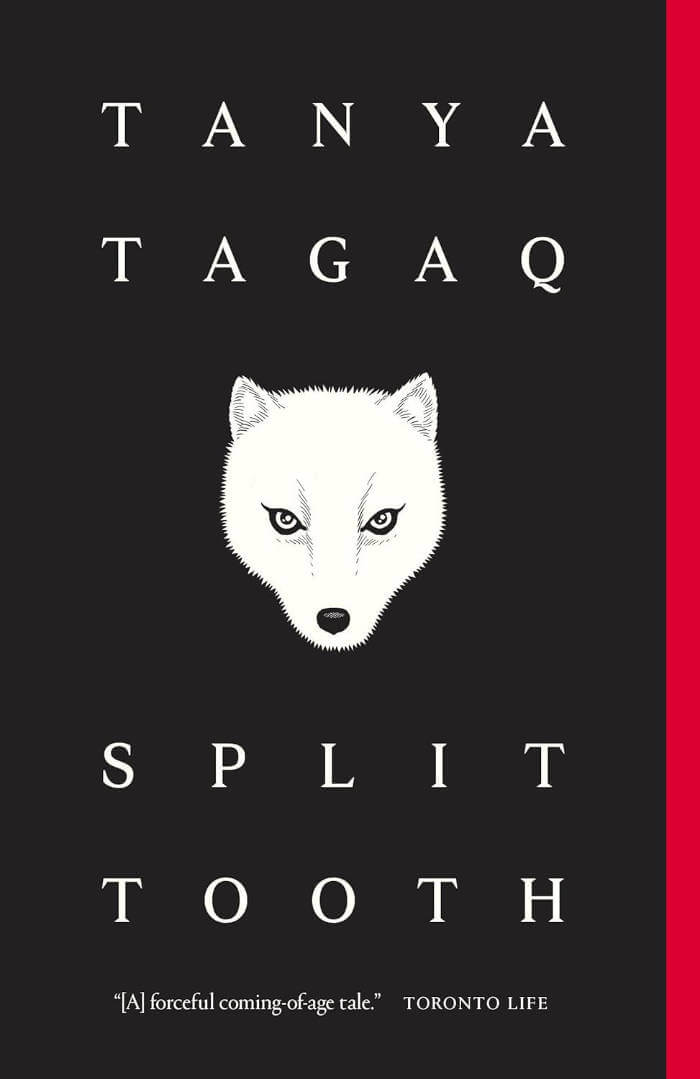
Split Tooth
Fact can be as strange as fiction. It can also be as dark, as violent, as rapturous. In the end, there may be no difference between them. An Inuk girl grows up in Nunavut, Canada, in the 1970s. She knows joy, and friendship, and parents’ love. She knows boredom, and listlessness, and bullying. She knows the tedium of the everyday world, and the raw, amoral power of the ice and sky, the seductive energy of the animal world. She knows the ravages of alcohol, and violence at the hands of those she should be able to trust. She sees the spirits that surround her, and the immense power that dwarfs all of us.
When she becomes pregnant, she must navigate all this.
In this acclaimed debut novel – haunting, brooding, exhilarating, and tender all at once – Tanya Tagaq explores the grittiest features of a small Arctic town and the electrifying proximity of the worlds of animals and of myth.
Winner of the 2019 Indigenous Voices Award for Published Prose in English.
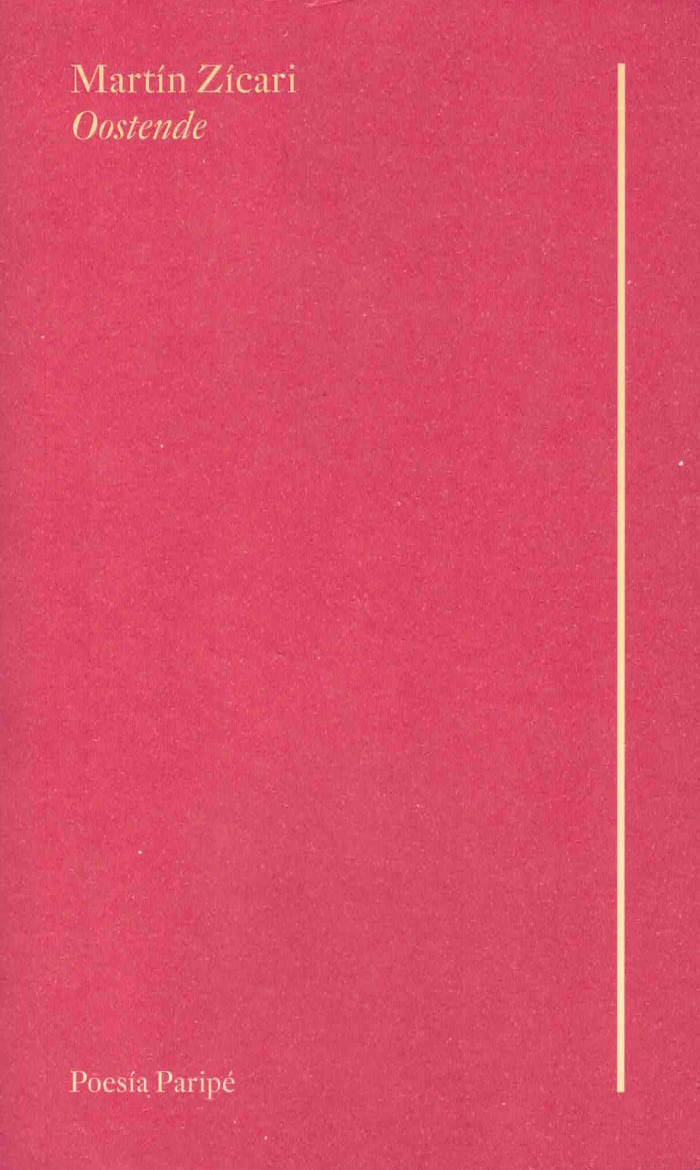
Oostende
Oostende is a book about displacement and the sometimes-overwhelming internal monologue we live with. In between poetry, diary and novel, the book reflects on Zicari’s life in Buenos Aires and Belgium, as he navigates work fragility, friendship, sex and love, migration and the fiction laying behind everyday actions and life changing decisions.
Zícari's portrayal of his private life is far from the domain of the concrete, instead he ventures into the uncontrollable production of fantasies that sustain his inner discourse. It is around this dichotomy between the real and the imaginary, the tension between the experienced and the illusion, that Martín Zícari builds a book sustained in orality and proximity.
Martín Zícari, PhD, is a writer and producer based in Brussels. He has published poetry collections such as "Oostende" (Paripé Books, Madrid, 2023), "Del Príncipe Azul al Hombre Invisible en una Semana" (Editorial Municipal de Rosario, Argentina, 2018), and "Pequellpu" (LUMA Foundation, Switzerland, 2015), as well as the short novel "Scalabritney" (Entropia, Argentina, 2014), among others. His research has been featured in scientific journals such as Performance Research, Memory Studies, and the Journal of Latin American Cultural Studies.

Greasepaint
Set against a backdrop of 1950s New York, this experimental novel follows an ensemble cast of all-singing, all-dancing butch dykes and Yiddish anarchists through eternal Friday nights, around the table, and at the bar.
In one of many bars, Frankie Gold sings while Sammy Silver plays piano after a day job at the anarchist newspaper. The Butch Piano Players Union meets in the corner next to the jukebox. Laur smokes on the back steps, sweaty thigh to thigh with Vic. Frankie's childhood sweetheart, Lily, turns up at yet another bar to see a second Sammy play every Friday night. And before all that, there's always dinner at Marg's. Fabulated out of oral histories, anthologies, as well as the fiction of the butch-femme bar scene and Yiddish anarchist tradition, Greasepaint is a rollicking whirlwind of music and politics—the currents of community embodied and held inside the bar.

Who Are You Dorothy Dean?
The first book devoted to the late African American writer and actress, Dorothy Dean, one of the few prominent African American women of New York City's bohemian heyday, close to Andy Warhol and Robert Mapplethorpe.
This second release from Éditions 1989 features Dorothy Dean's unpublished writing and selected correspondence with Edie Sedgwick, Rene Ricard, and Taylor Mead, among other friends and artists. This volume also includes Dean's transcendent script of an unrealized film starring Factory actor, Ondine.
Lyrical, humorous, political, and brutally honest, Who Are You Dorothy Dean? is a tribute to one of the few prominent African American women of New York City's bohemian heyday.
Dorothy Dean (1932-1987) was an African American writer and actress. She entered the 1960s New York underground scene and quickly became one of its key, if overlooked, figures, starring in six of Andy Warhol's films and inspiring the likes of Robert Mapplethorpe and Robert Creeley. Presumably the first woman ever hired as fact-checker at The New Yorker, Dean held brief editorial and proofreading positions at publications such as Vogue before launching her very own bulletin of film reviews, the All-Lavender Cinema Courier, in 1976.
Edited by Anaïs Ngbanzo.
Texts by Dorothy Dean, Edie Sedgwick, Robert Creeley, Gerard Malanga, Rene Ricard, Taylor Mead, et al.
Translated from the English (American) by Rachel Valinsky.

The Singularity
The Singularity is a study of grief, migration, and motherhood from one of Sweden's most exciting new novelists.
In an unnamed coastal city filled with refugees, the mother of a displaced family calls out her daughter's name as she wanders the cliffside road where the child once worked. The mother searches and searches until, spent from grief, she throws herself into the sea, leaving her other children behind. Bearing witness to the suicide is another womanon a business trip, with a swollen belly that later gives birth to a stillborn baby. In the wake of her pain, the second woman remembers other losses—of a language, a country, an identity—when once, her family fled a distant war.

Nicolas Pages
An ode to mad love, awarded the Prix de Flore in 1999.
Published in 1999 and awarded that year's Prix de Flore, Nicolas Pages marks a departure from the Sadean preoccupations of Guillaume Dustan's first three novels; it is, in essence, a love story. Inspired by a failed romance with the Swiss artist-writer Nicolas Pages and collaging texts that Dustan initially produced for a wide variety of other occasions (magazine articles, short stories, project notes, shopping lists, and more), the "auto-/bio-/porno-graphic" prose of Nicolas Pages is by turns trashy and encyclopedic, corporeal and philosophical. Here Dustan inaugurates a "gay literature" that is no longer painful or shameful, but epicurean and cheerful without ever lapsing into idealism. A vibrant plea for gay rights and a tapestried text that is more than the sum of its many styles, Nicolas Pages is a call to explore the body, sexuality, and writing in all their variety; it is a hymn to life, humanity, pleasure, and desire.

Margery Kempe
First published in 1994, Robert Glück’s Margery Kempe is one of the most provocative, poignant, and inventive American novels of the last quarter century.
The book tells two stories of romantic obsession. One, based on the first autobiography in English, the medieval Book of Margery Kempe, is about a fifteenth-century woman from East Anglia, a visionary, a troublemaker, a pilgrim to the Holy Land, and an aspiring saint, and her love affair with Jesus. It is complicated. The other is about the author’s own love for an alluring and elusive young American, L. It is complicated. Between these two Margery Kempe, the novel, emerges as an unprecedented exploration of desire, devotion, abjection, and sexual obsession in the form of a novel like no other novel.
Robert Glück’s masterpiece bears comparison with the finest work of such writers as Kathy Acker and Chris Kraus. This edition includes an essay by Glück about the creation of the book titled "My Margery, Margery's Bob."

Motion Sickness
At once dreamlike and tough, hilarious and melancholic, Motion Sickness is a contemporary picaresque in which a young woman drifts and reinvents herself with every new encounter.
For the narrator of Motion Sickness life is an unguided tour, populated with hotels and strangers, art, books, and films. Adrift in Europe, her life becomes a carousel of unusual encounters, where coincidences and luck shape la vita nuova.
In London our narrator is befriended by an expatriate American Buddhist and her mysterious husband. In Paris she meets Arlette, an art historian obsessed with Velazquez’s painting ‘Las Meninas’. In Barcelona she meets two generations of Germans. She tours the hill towns of Italy in a London taxi with two surprising Englishmen in pursuit of art and Henry Moore. She buys postcards to send, but often tears them up, not sure of what the pictures mean.

Century of Clouds
This edition restores to print a central text of the New Narrative movement, founded in San Francisco by Boone and Robert Gluck in response to the stagnation of contemporary experimental poetry of the late 1970s. Wishing to bring the vigor and energy of the gay rights and feminist movements, Bruce Boone’s writing of the late 1970s is as fresh, funny, witty, and self-reflexive as it was thirty years ago. First published in 1980, Century of Clouds, based on Boone’s experiences at the summer meeting of Marxism and Theory Group in St. Cloud, Minnesota, takes up issues of sexuality, political and theoretical identity, religion, and friendship in the characteristically rich and varied writing of the New Narrative movement.

Amalgamemnon
History and literature seem to be losing ground to the brave new world of electronic media and technology, and battle lines are being drawn between the humanities and technology, the first world and the third world, women and men. Narrator Mira Enketei erases those boundaries in her punning monologue, blurring the texts of Herodotus with the callers to a talk-radio program, and blending contemporary history with ancient: fairy-tale and literal/invented people (the kidnappers of capitalism, a girl-warrior from Somalia, a pop singer, a political writer), connected by an elaborate mock-genealogy stretching back to the Greek gods, move in and out of each other's stories. The narrator sometimes sees herself as Cassandra, condemned by Apollo to prophesy but never to be believed, enslaved by Agamemnon after the fall of Troy. Brooke-Rose amalgamates ancient literature with modern crises to produce a powerful novel about the future of culture.
Christine Frances Evelyn Brooke-Rose was a British writer and literary critic, known principally for her later, experimental novels.
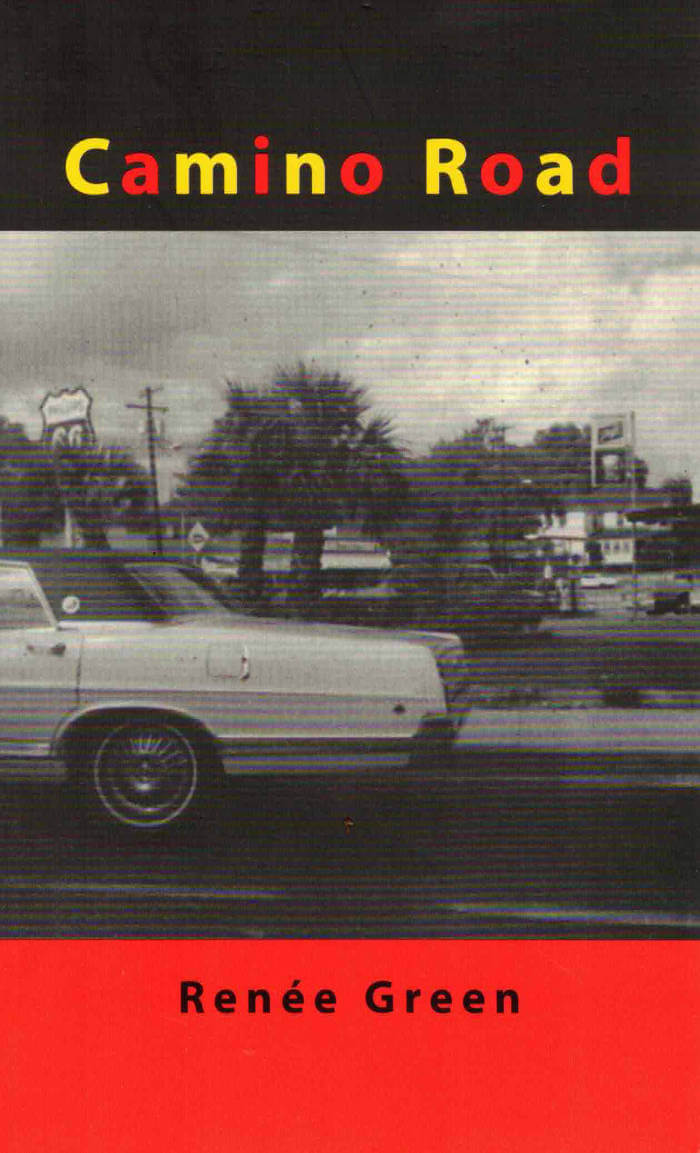
Camino Road
First published in 1994, Camino Road is artist Renée Green’s debut novel—a short, ruminative work infused with semantic ambiguity and the dreamy poetry of the quotidian. Republished here in a facsimile edition, the book ostensibly traces its protagonist Lyn’s journeys to Mexico and her return to attend art school in 1980s New York, but what emerges is more an intertextual assemblage of the moments between drives, dreams, and consciousness. Lyn does her Spanish homework and makes note to read Anna Kavan and Cortázar; she watches Fellini; she dreams about the Mediterranean Sea. Much like Green’s multimedia installations encompassing the sonic, spatial, and visual, Camino Road is richly layered—part intellectual genealogy, part fictional personal memory, and part cultural criticism.
Green has described the book as a “self-conscious homage to or parody of the ‘road novel,’ ‘bohemia,’ and artist-rebels.” “I’d been thinking about the beat generation, figures like Jack Kerouac, Burroughs, etc.—the mythic construction of the artist personality as rebel and how females, and myself in particular, entered into that,” she said. “These ‘beat’ sources seemed to form a typical American introduction to the idea of bohemia and of being an artist.”
Originally created as part of Green’s contribution for the group exhibition Cocido y crudo/The Cooked and the Raw at the Museo Nacional Centro de Arte Reina Sofía, Madrid, the text is written in both English and Spanish, and accompanied by an appendix of photographs and ephemera tracing Madrid’s La Movida, a Spanish countercultural moment from the 1980s. The book was published through Green’s production company, Free Agent Media (FAM), which since 1994 has been circulating and exhibiting media, printed matter, and time-based projects.
A unique treatise on the circuits of exchange in gender, politics, and art, Camino Road can also be read as a variation on the classic Bildungsroman genre. “I don’t feel developed in any area,” thinks Lyn at one point. “It’s very difficult being young and incomplete.” Importantly, she also muses, “I want to be swallowed by another language.”